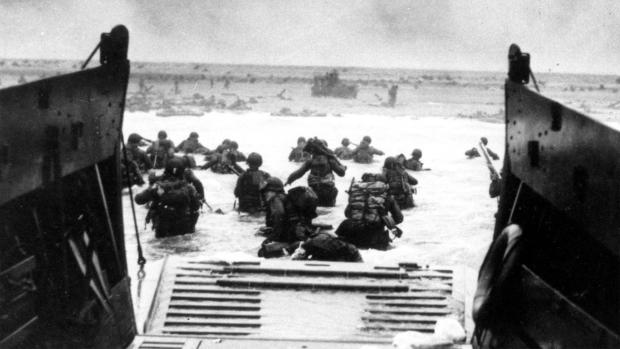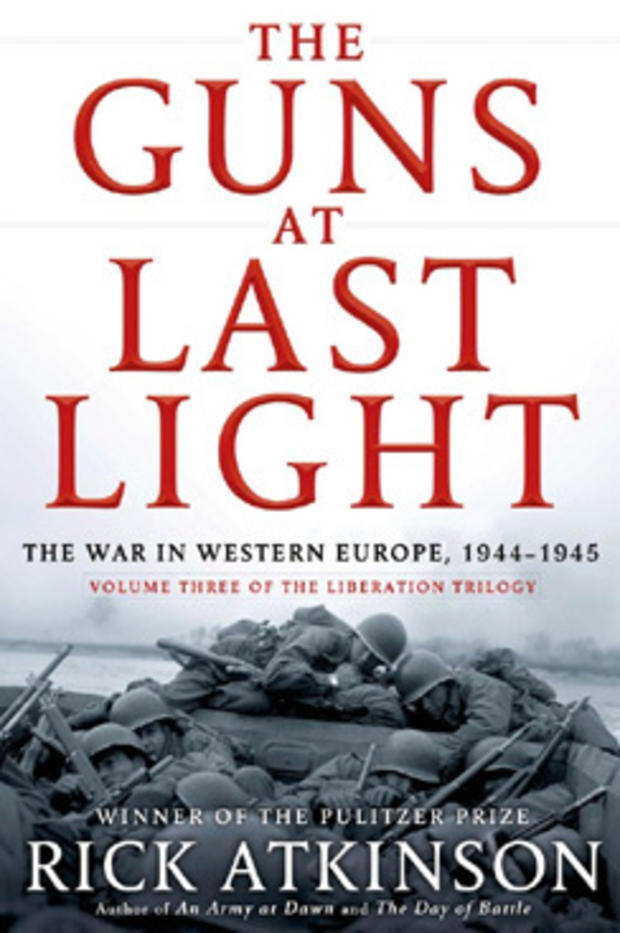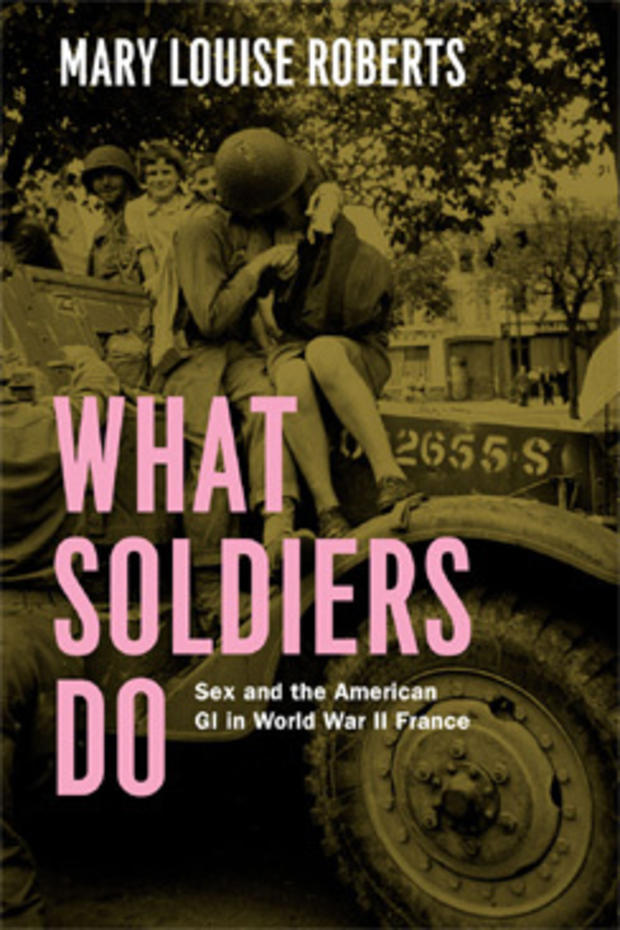When some liberators were criminals
(CBS News) With the anniversary of the 1944 D-Day invasion due this coming Thursday, there's an untold story that's coming to light about some of the soldiers who took part -- and we warn you, it's not an easy story to hear. Here's national security correspondent David Martin:
The Allied landing on the Normandy beaches marked the beginning of the end of World War II -- a conflict of such vast suffering as to defy comprehension.
"This is the greatest catastrophe in human history," said Pulitzer Prize-winning author Rick Atkinson. "There's 60 million people who die in World War II. It's a death every three seconds for six years."
In his new book about the liberation of Europe, "The Guns at Last Light," Atkinson quotes a German general as calling the battle for Normandy "a monstrous blood mill."
For the first 24 hours, General Dwight Eisenhower, the commander of Operation Overlord, did not know if his troops were winning or losing.
"Eisenhower had written a message accepting full responsibility for the failure of the landings," said Atkinson, "and he never had to use it."
Last weekend Defense Secretary Chuck Hagel read the words Eisenhower never used to the graduating class at West Point, as the standard for all who would lead: "The troops, the air, and the Navy did all that bravery and devotion to duty could do. If any blame or fault attaches to the attempt, it is mine alone."
At stake was liberation from Nazi tyranny -- a heroic story, but one which had a dark underside.
Fifteen thousand French citizens were killed by Allied bombings leading up to D-Day.
Once the Allied forces were ashore, some GIs were left wondering whether they had liberated or obliterated French villages. The late Andy Rooney, who covered the invasion as a reporter, wrote of the French: "It was true they were being freed, but at the cost of everything they had."
And beyond that, not all American soldiers conducted themselves like members of the "Greatest Generation."
"War does bad things to people in general," said Atkinson. "It makes good soldiers do bad things, and it makes bad soldiers do terrible things."
"There is a great deal of war trauma, and as a result there was a great deal of alcoholism and just misbehavior," said Mary Louise Roberts. The author of "What Soldiers Do: Sex and the American GI in World War II France," she was the first American to gain access to French archives which had been sealed since the war.
Roberts photographed documents in which French officials complained of a "regime of terror" perpetrated by "bandits in uniform." Also, said Roberts, "There [were] many rape accusations on the part of the Norman women."
Atkinson came across similar documents.
"The French high command sends a letter to Eisenhower saying, 'Look, this is not acceptable. Our women are afraid to go out at night if they're unaccompanied,'" Atkinson said.
In response, Eisenhower ordered his commanders to take action against "the large incidence of crimes such as rape, murder, assault, robbery, housebreaking, etc."
But he still got letters from French mothers complaining that GIs were taking advantage of their daughters and leaving them pregnant.
"The GIs had a preconception of France as -- as one journalist put -- a gigantic brothel," said Roberts. "And in fact Hitler also called France the brothel of Europe."
In her book, Roberts writes that D-Day unleashed "a veritable tsunami of male lust" on French villages and towns like Le Havre.
"At one point the mayor wrote the colonel and said, couldn't we have a controlled brothel by the military base?" said Roberts. "Because the GIs were literally having sex everywhere -- in the parks and cemeteries and abandoned buildings."
But brothels were declared off-limits to American troops.
In a "Dear Ike" letter protesting that order, General George Patton wrote, "It is futile to attempt to go against human nature." General Charles Gerhardt, arguing that his troops "had been in combat for a hell of a while" and that "certain facts must be faced in this business," opened a bordello in the port of Cherbourg, but was ordered to shut it down.
As for Paris? Or what Roberts called a "lean, mean sex machine."
"Well, the GIs often went on leave," she said. "That was the place to go in the winter of '44-'45 and, the GIs only had 48 hours and they were not going to Paris to go to the Louvre. They were going to Paris to visit the brothels."
Through it all, American GIs were perhaps the best-behaved soldiers of World War II.
"There are 12,000 charged with felonies in Europe in 1944 and '45;" said Atkinson. "That's out of an army of several million."
Atkinson has now written three books chronicling American soldiers as they fought across Europe and North Africa. In a sense, he has spent the past 14 years living with American GIs as they pressed forward in the face of death and killed time in the months of occupation.
"The notion that all the brothers were valiant and all the sisters were virtuous is nonsense," said Atkinson. "That's not the way it works in a war. We should know that whether it's a war that happened 70 years ago or whether it's a war that's underway now, war really flays open the soul, and it makes good people do things that they wouldn't do had they not been subjected to the stresses of war."
And we should know that more than 9,000 of the Americans who came ashore at Normandy lie buried in France.
For more info:
- "The Guns at Last Light: The War in Western Europe, 1944-1945" by Rick Atkinson (Henry Holt); Also available in eBook format
- "The Liberation Trilogy" (Author's website)
- "What Soldiers Do: Sex and the American GI in World War II France" by Mary Louise Roberts (University of Chicago Press); Also available in eBook format
- Mary Louise Roberts, University of Wisconsin


